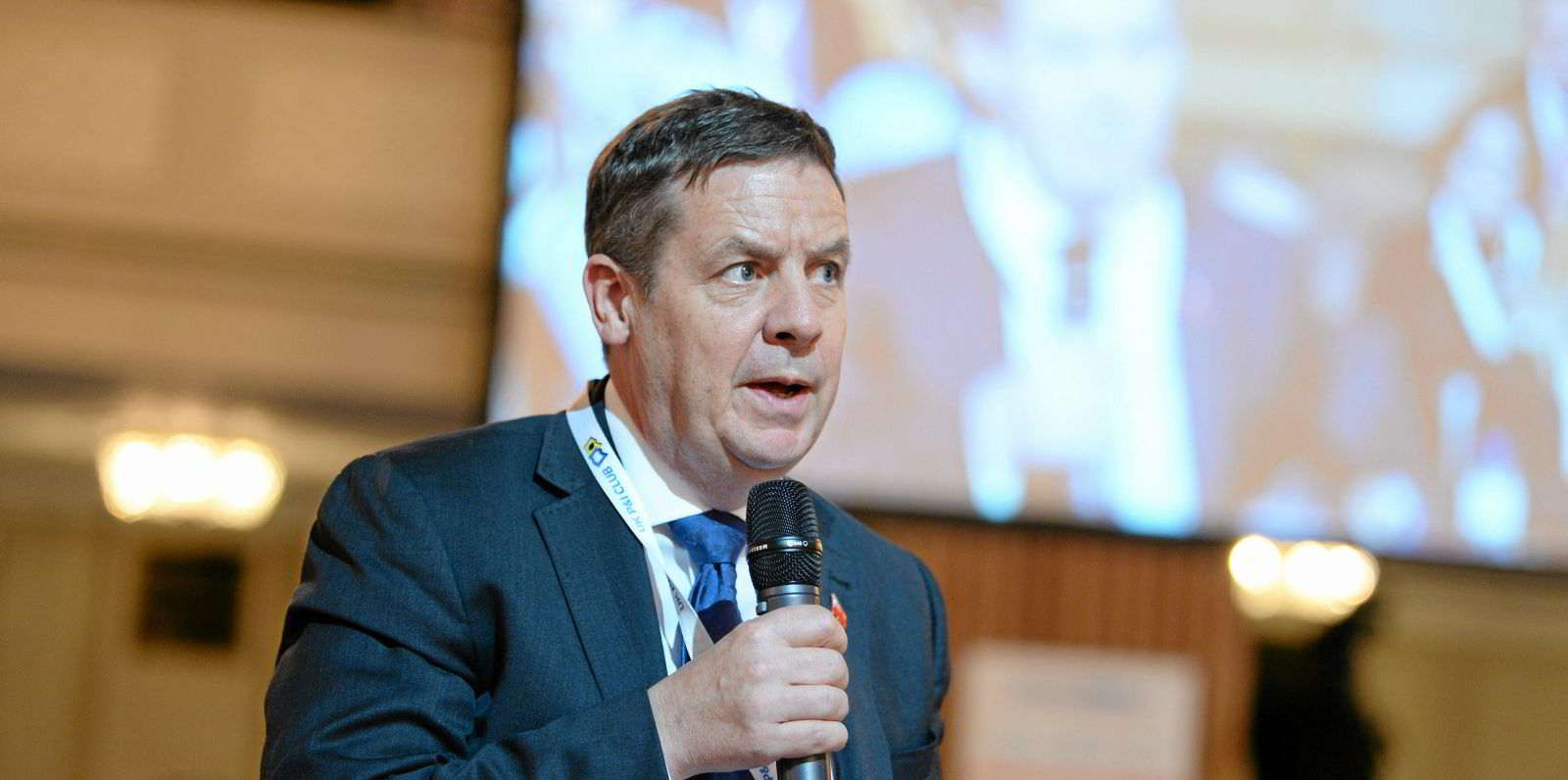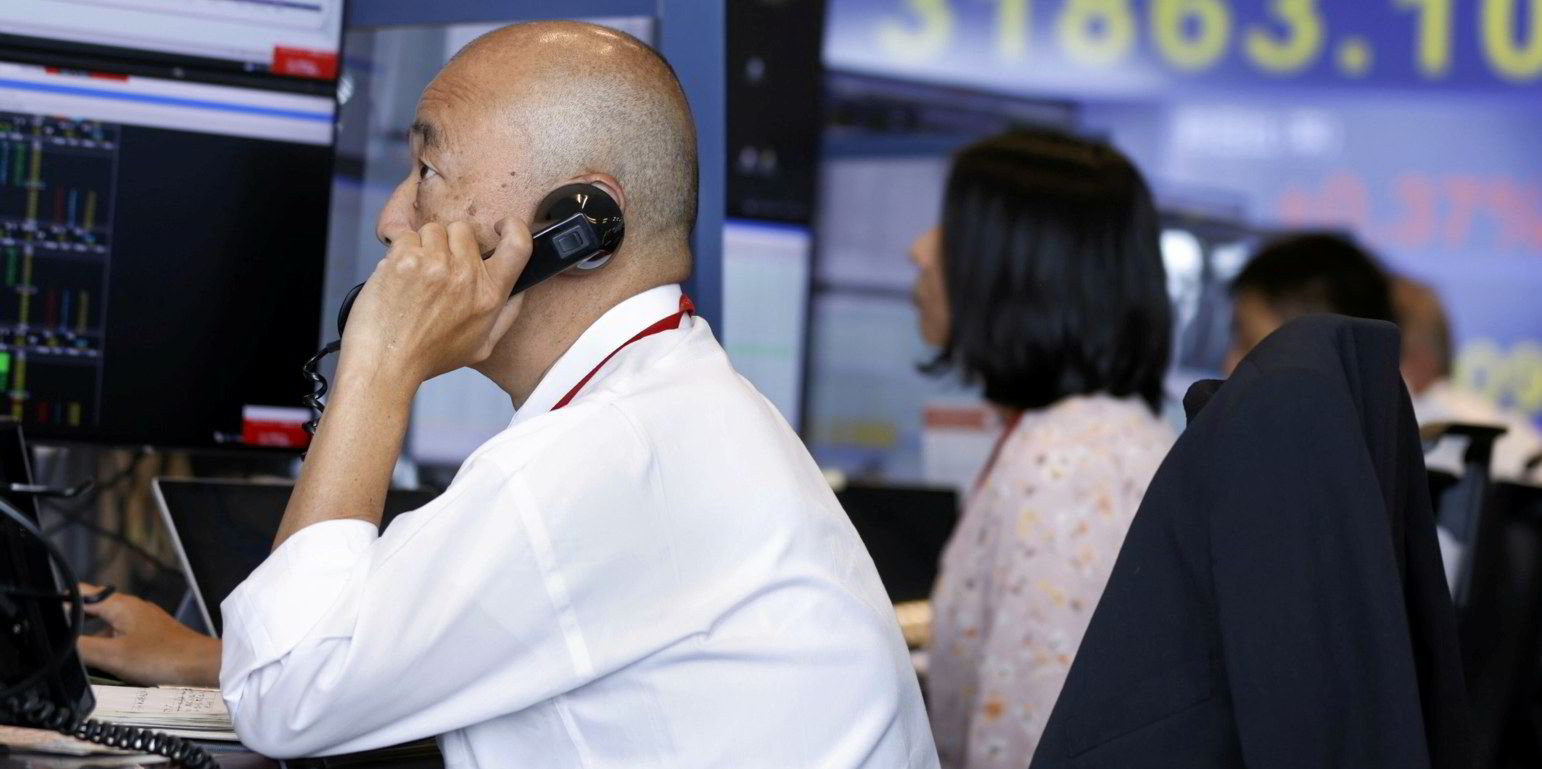Shipping must emerge from the background of international trade to fight for its share of the new generation of green fuels that will drive decarbonisation, the head of the International Chamber of Shipping has told TradeWinds.
Secretary general Guy Platten said his organisation will use the two weeks of talks at the United Nations climate change summit in the United Arab Emirates to persuade key decision-makers of the importance of shipping in the energy transition and ensure its unique position is recognised.
Shipping is expected to move more than 50% of traded low-carbon fuels by 2050. That marks a significant increase from 36% of currently traded bulk liquids, said the ICS, which represents shipowners.
Volumes will also be much higher with the new fuels several times less energy-dense than traditional marine fuels. But the fuel production centres, vessels and port infrastructure are not yet in place to transform the market.
Platten believes that engine, carbon capture and other technologies would be ready in time but the question for shipowners remained how they would get enough of the cleaner fuels to ensure uninterrupted trade around the world.
“For many years, we’ve been in the background. Now we need to take a step forward and actually demonstrate that we’re doing some really amazing things in terms of the technology,” he said. “Ammonia and methanol engines are coming on stream, we see loads happening on carbon capture and storage.”
Navigating the shift
Platten said that shipping was moving from a position of burning the fuels that “nobody else really wants” to competing with every other sector for new fuels.
“The one big uncertainty for the shipowners is, where am I going to get the fuel from? And that’s a message we need to get across,” said Platten.
“We don’t want special dispensation, we just want to raise the fact that we are also going to need access to the fuels the same as everybody else.
“Governments will have to see us as absolutely necessary because we’re going to facilitate the movement of not just fuels, but trade.”
The challenge for shipping to secure its share of cleaner fuels was highlighted this week by the first large passenger plane powered only by alternative fuels flying from the UK to the US. Officials said there was not currently enough sustainable aviation fuels to power the industry.
The UN’s COP28 talks will be key to persuading governments and key decision-makers to step up their efforts to develop cleaner oils for shipping and infrastructure.

Thousands of fuel plants will be needed with access to green sources of energy to produce the fuels that will be used for industry, shipping and other sectors.
But Platten cited the difficulties of building that infrastructure amid local protests and complex planning rules, citing Italy where it takes more than a decade before a wind farm goes from idea to ribbon-cutting.
“We only use 4% of the world’s fuels at the moment, it’s the other 96% that we need to focus on as well,” said Platten
“The reality on the ground is that there isn’t as much happening as needs to in terms of infrastructure development.”
The industry warned in July that the logistics of moving alternative fuels had been ignored in the rush to develop alternatives to existing carbon-heavy fuels.
The concerns prompted the development of a cleaner energy marine hubs initiative to encourage investment and government action to link low-carbon fuel producers with consumers across the world.
The ICS will hold a shipping summit at the climate change meeting in conjunction with the energy ministry of the climate change talks hosts on 10 December.

The meeting is aimed at identifying the next steps after the International Maritime Organization in July strengthened the industry’s ambitions to decarbonise by 2050.
Under the agreement, shipping will target at least 5% of energy used by international shipping to be zero or near zero emission by 2030.
The aim is also to cut annual greenhouse gas emissions from international shipping by at least 20% by 2030 and at least 70% by 2040 based on 2008 levels.
The immediate goal is to secure agreement on a series of measures on technical standards for cutting fuel emissions and how it will be paid for.
The measures should be in place in 2027 to encourage owners to shift to newer fuels and ensure it is done fairly both globally and across the industry.
The IMO failed to reach an agreement on a carbon pricing mechanism when it announced the upgrade to its decarbonisation ambitions amid disagreements on who would shoulder the burden.
Securing a deal will be a key early challenge for the IMO under the leadership of its new head Arsenio Dominguez from 2024.
Read more
- ‘The wolf is here’: Failure to build infrastructure to prevent Panama Canal water crisis fuels anger
- Hunter says long-term deals must be agreed before it will order new CO2 carriers
- By reservation only: Panama Canal slot breaks new record as unbooked ships turned away
- Biden administration pumps $650m into US port upgrades
- Green Seas: Climate change reverberates through shipping amid Panama Canal and liner woes





